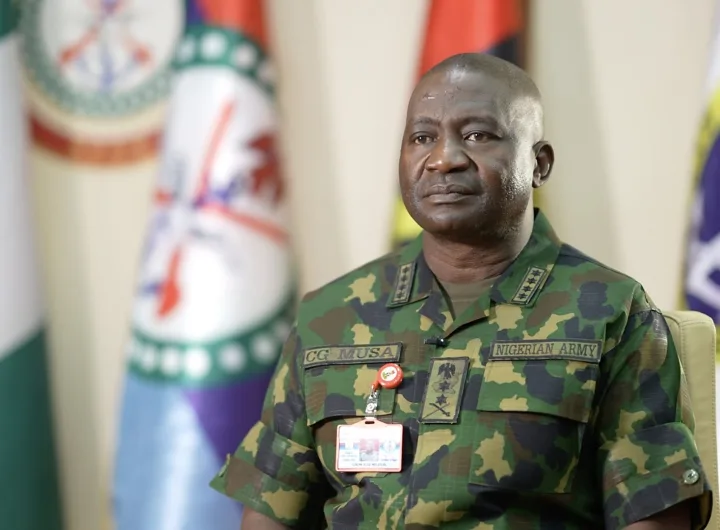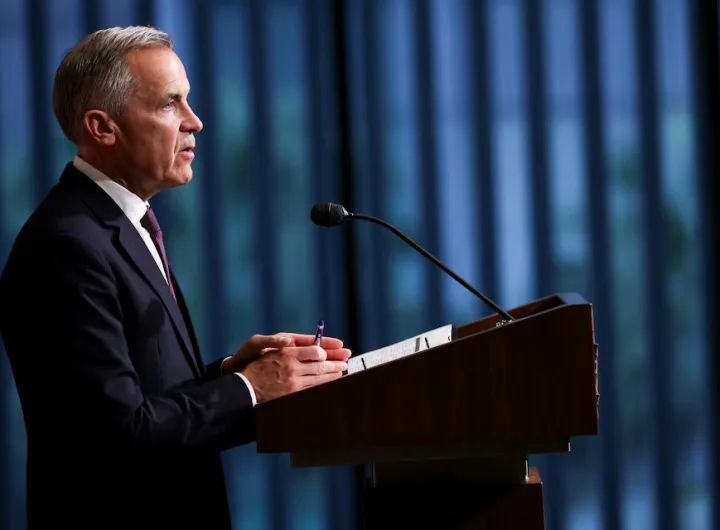
President Tinubu has ordered more recruitment into security forces to fight insecurity/Lionscrib
President Tinubu has declared a national state of emergency on security as insecurity heightens.
Abuja, Nigeria — President Bola Ahmed Tinubu has declared a nationwide security emergency in response to escalating armed violence, kidnappings, and terrorist attacks that have plagued multiple states across Nigeria in recent weeks.
The Triggering Events
The declaration comes on the heels of devastating attacks across several Nigerian states, including Kebbi, Borno, Zamfara, Niger, Yobe, and Kwara. These incidents have resulted in dozens of civilian casualties and mass abductions that have shaken the nation’s sense of security.
Among the most high-profile cases were the abduction of 24 schoolgirls in Kebbi State and 38 worshippers in Kwara State, both of whom have since been rescued. However, over 200 students from a Catholic school in Niger State remain in captivity, along with other Nigerians held hostage by armed groups.
The violence has also claimed the lives of security personnel, including Brigadier-General Musa Uba, underscoring the severity of threats facing the nation’s armed forces.
The President’s Response
In a personally signed statement issued on Wednesday, President Tinubu outlined comprehensive measures to address what he termed a national emergency. “Today, in view of the emerging security situation, I have decided to declare a nationwide security emergency,” the president announced.
The emergency declaration includes several immediate actions. The Nigerian Police Force will recruit an additional 20,000 officers, bringing total planned recruitment to 50,000 personnel. To expedite training, the government has authorized the use of National Youth Service Corps camps as temporary training facilities.
Related: Trump Redesignates Nigeria as ‘Country of Particular Concern’ Over Religious Freedom Claims
In a significant operational shift, officers currently assigned to VIP protection duties will be redeployed to security-challenged areas after undergoing specialized retraining. The Department of State Services has been directed to immediately deploy all trained forest guards to combat terrorists and bandits hiding in Nigeria’s forests, with authorization to recruit additional personnel.
Broader Security Reforms
President Tinubu’s declaration extends beyond immediate recruitment measures. He has called on the National Assembly to review existing laws to permit states to establish their own police forces, recognizing that local security challenges may require localized responses.
The president also addressed the persistent farmer-herder conflicts that have contributed to rural insecurity. He urged herder associations to embrace ranching as the future of livestock farming, end open grazing practices, and surrender illegal weapons. The administration’s creation of a Livestock Ministry is intended to provide a framework for resolving these longstanding tensions.
Religious institutions and educational establishments have been advised to reassess their security arrangements. The president recommended that mosques and churches in vulnerable areas seek police protection during gatherings, and urged states to reconsider establishing boarding schools in remote locations without adequate security infrastructure.
A Call for National Unity
Throughout his address, President Tinubu emphasized that addressing Nigeria’s security crisis requires collective action. “The times require all hands on deck. As Nigerians, we should all get involved in securing our nation,” he stated, urging citizens to remain vigilant, report suspicious activities, and cooperate with security agencies.
The president struck a firm tone regarding the government’s resolve, warning that restraint should not be interpreted as weakness. He assured Nigerians that his administration possesses the determination to safeguard the country and ensure citizens can live in peace.
The Broader Context
Nigeria has grappled with multiple security threats for years, including Boko Haram insurgency in the northeast, armed banditry in the northwest and north-central regions, separatist agitations in the southeast, and communal clashes across various states. These conflicts have resulted in thousands of deaths and displaced millions of Nigerians.
The security emergency declaration represents President Tinubu’s most comprehensive response to date, signaling an escalation in government efforts to restore peace and stability. As the nation awaits implementation of these measures, the ultimate test will be whether increased personnel and reformed strategies can effectively address the complex security challenges facing Africa’s most populous country.
President Tinubu concluded his address with a message of hope, stating that Nigerians should not succumb to fear or despair, assuring them that together, the nation will overcome its current security challenges.

 Messages Exchanged Between Norwegian Prime Minister and President Trump
Messages Exchanged Between Norwegian Prime Minister and President Trump  Defence Minister Warns State Governors Against Peace Deals With Bandits
Defence Minister Warns State Governors Against Peace Deals With Bandits  Six People Injured In Suspected Bomb Explosion In Adamawa
Six People Injured In Suspected Bomb Explosion In Adamawa  Trump Warns Iran Of ‘very strong action’ If Protesters Are Hanged
Trump Warns Iran Of ‘very strong action’ If Protesters Are Hanged  Canadian PM Mark Carney Visits China After Nearly Ten Years of Strained Relations
Canadian PM Mark Carney Visits China After Nearly Ten Years of Strained Relations  Opposition Candidate Bobi Wine Campaigns In Kampala Neighborhood Of His Childhood Ahead Of Uganda Elections
Opposition Candidate Bobi Wine Campaigns In Kampala Neighborhood Of His Childhood Ahead Of Uganda Elections